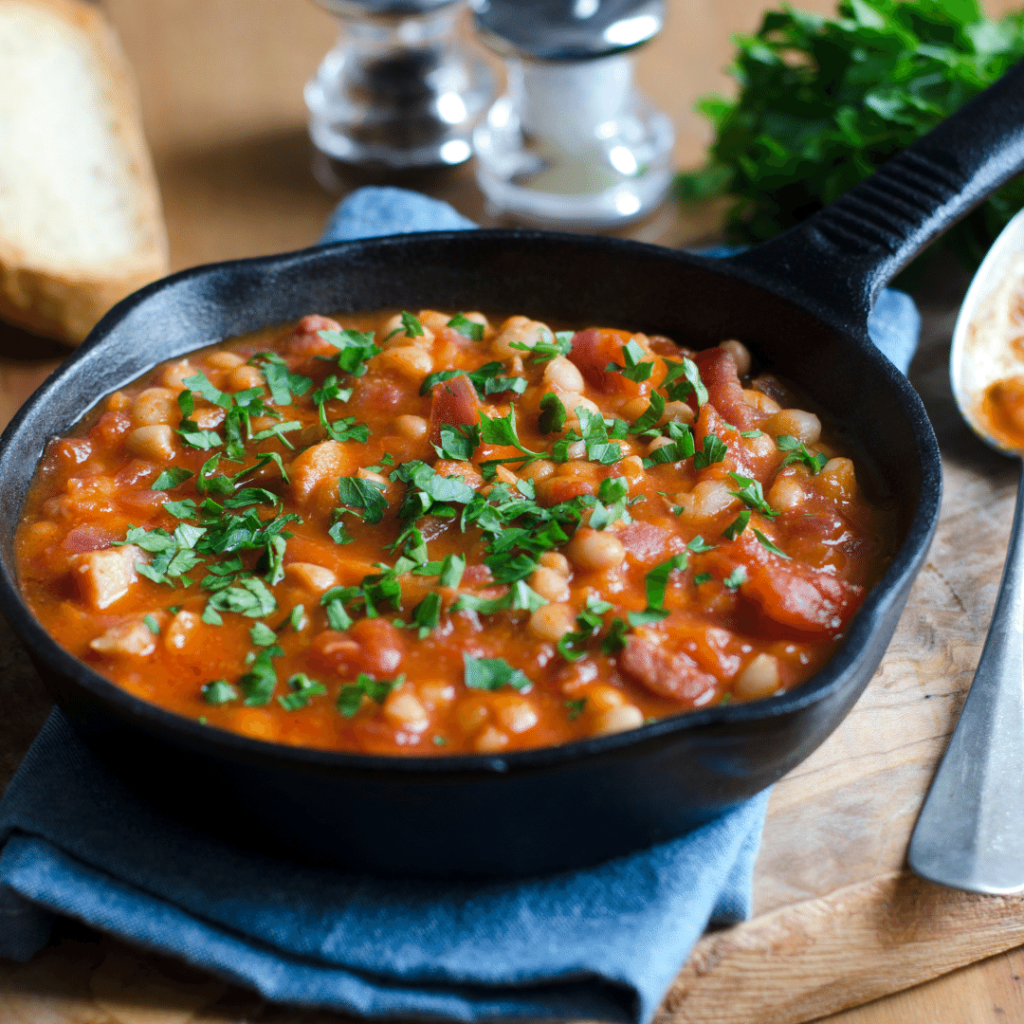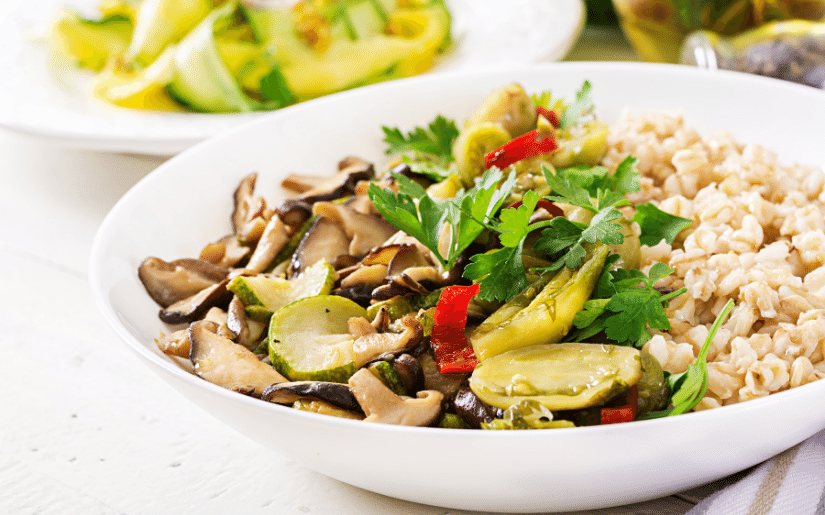What happens when you become vegetarian? Do you crave meat all the time? Do you have to stop eating out? How do you feel…. do you have more energy… or less? What should you expect when it comes to your health, mentally and physically?
Maybe your yoga buddy mentioned that she follows a vegetarian diet. Or maybe your trainer suggested it. Now, you’re thinking about giving up meat, but you’ve got a lot of questions. Most importantly, is it really worth it?
Everybody is different and how you decide to eat is a very personal decision. Maybe you feel great on a diet that includes meat, fish, dairy, eggs, and other animal products. But if you’re noticing some digestive issues or you’re simply wanting to lead a greener lifestyle, going vegetarian just might be for you.
In fact, vegetarian diets and vegan diets offer a number of health benefits that make them worthy of some serious consideration. If you’re thinking about making the switch, here’s what you can expect, both mentally and physically.
What Happens When You Become Vegetarian? Here’s What to Expect!
1. Your Moods May Improve

Of course, diet isn’t the only thing that affects your moods. Sleep, exercise, and stress all play major roles. But what you eat can really make a difference, too.
According to a study published in Nutrition Journal, going vegetarian could improve your moods. That’s because meat, fish, and poultry produce a chemical called arachidonic acid, which has been linked to mood issues. Simply omitting these animal foods reduces this chemical in your body and may help to stabilize your moods.
2. Your Palette May Change
After you make the switch to a vegetarian diet, you may notice that your taste preferences are starting to change. For example, certain foods that you’ve always enjoyed may not taste good anymore. You may even notice that other foods taste better.
This probably has a lot to do with the fact that vegetarians tend to avoid processed, overly salty foods, which can overload your palette. But it could have something to do with a zinc deficiency. Zinc is a mineral that’s required for taste, and it’s a common deficiency in a vegetarian diet.
If you notice that food isn’t as flavorful as it used to be, try increasing your intake of zinc. Plant-based foods that are rich in zinc include chickpeas, spinach, and whole grains.
3. It May Take You Longer to Recover After Workouts
If you’re a runner or someone who likes to work out, you may notice that your muscles don’t recover as quickly as they used to after you go vegetarian. Unfortunately, plant proteins take the body longer to break down and reassemble into a form the body can use.
But that doesn’t mean you have to give up working out or live with sore muscles. It just means you need to include more plant-based protein in your diet. For example, have a soy-based protein shake after your workout to speed healing and help your body recover faster.
4. Your Energy Levels Might Increase
So, what else happens when you become vegetarian? Well, it turns out that elevated energy levels may be one of many perks. Experts believe this is due to a higher intake of vitamins, antioxidants, and fiber, which improves digestion. Improved digestion reduces that sluggish feeling and helps you absorb nutrients better, which can have a positive impact on your energy.
5. Or You May Feel Run Down

It can take some time to learn what your body needs when you first go vegetarian. You may notice that you feel a bit run down at times, which is probably due to nutrient deficiencies in vitamin B12, iron, and vitamin D. In fact if you exercise when you’re iron deficient, you may deal with extreme fatigue and other severe symptoms.
These nutrients are more abundant in animal products than they are in plant-based foods. It may be a good idea to supplement your diet with important vitamins for vegetarians to help counteract these deficiencies. Keep in mind that vitamins A, D, E, and K are fat-soluble. Be sure to consume plenty of healthy fats so that your body can readily absorb these key nutrients.
Keep in mind that most people, even vegetarians, don’t need an iron supplement. Just be sure to eat plenty of iron-rich plant foods, like legumes, dark leafy greens, and dried fruits. Be sure to eat iron-rich foods and vitamin C foods together to improve iron absorption. Citrus fruits, peppers, and leafy greens are all good sources of vitamin C on a plant-based diet.
6. You May Feel Bloated in the Beginning
That same fiber that can improve your digestion can also result in some bloating when you’re first making the switch. Plant foods not only have more fiber, but they also have more good bacteria. And while this is ultimately very good for your gut, it can take your body a little time to adjust.
If bloating is an issue in the first few weeks, don’t let it discourage you. The feeling is usually temporary. Try increasing your water consumption and cutting back on foods that can cause bloating, like beans and broccoli.
7. You May Sleep Better
Just like your moods, there are lots of things that can affect your sleep. But going eliminating meat from your diet may help you sleep better because digestion and metabolism are slowed down by animal foods.
Vegetarians may sleep better because they can break down their food easier and because their diet is richer in minerals. The vegetarian lifestyle also tends to be healthier in general, with more exercise and less alcohol consumption, which also adds up to a better night’s sleep.
8. Your Hormone Levels May Change
Non-organic meat, poultry, and dairy products often contain hormones that can throw your body’s hormone levels out of balance. When you switch to a vegetarian or vegan diet, you not only eliminate these unnatural hormones, but your body may begin to produce other hormones more efficiently, including estrogen, progesterone, and testosterone.
On top of that, healthy fats that come from plant sources, such as olive oil, coconut oil, and avocados, can actually increase your “good cholesterol,” which may also play a role in balancing your hormones.
9. Your Bathroom Habits May Be Inconsistent
With all these changes to your diet, it’s no surprise that your bathroom habits might change as well. Some people deal with constipation when they go vegetarian, while others develop diarrhea or alternate between the two.
While this can be incredibly annoying, it’s another one of those things that usually go away once your body adjusts. But if it doesn’t, it’s worth checking in with your doctor just to make sure your issues are actually related to your diet changes. Constipation and diarrhea can be an issue if left untreated, so it’s better not to take any chances.
10. You May Not Experience Sugar Crashes
Those who follow a plant-based diet may notice that they feel full longer after they eat, and they don’t deal with annoying blood sugar crashes during the day. Once again, this is due to eating a fiber-rich diet.
Fiber takes longer to digest and makes the stool more firm, which keeps things moving along the digestive tract. It also helps you feel satisfied longer after you eat since digestion is slower.
But even better than that, your blood sugars don’t fluctuate between highs and lows because slower digestion means that glucose is absorbed into the bloodstream more consistently. This helps your energy level remain steady throughout the day.
11. Your Skin May Be Clearer
Not all meat eaters have acne issues, but not all vegetarians have clear skin either. That said, following a vegetarian diet may increase your chances of having clear skin. This is mainly because vegetarians eat more fruits and vegetables than those on omnivore diets.
Fruits and veggies are rich in antioxidants and they’re very hydrating, both of which can help keep the skin clearer. As an added bonus, all those antioxidants also protect the skin from premature aging due to free radical damage.
12. It’s Easy to Get Enough Protein

One of the first things people worry about on a vegetarian diet is that they won’t be able to get enough protein if they don’t consume animal products. The truth is, it’s easy to get enough protein on a plant-based diet, even if you’re gluten-free. Of course, you’ll want to pay attention to your protein intake, but you probably won’t struggle to get enough.
Nuts, seeds, beans, and peas are all great sources of protein. Soybeans and soy products like tofu and tempeh are also great options, and they contain other nutrients your body needs. Not only that, but whole grains, leafy green vegetables, and dairy alternatives also contain decent amounts of protein, so as you can see, it’s not that hard to get enough protein on a plant-based diet.
One word of caution! Don’t overdo it on the highly processed meat alternatives for vegetarians. These products tend to be high in sodium and lower in nutrition.
13. Your Heart May Be Healthier
Among the many health benefits of switching to a vegetarian diet is improved heart health. This is because of the increased fiber intake which helps to lower bad cholesterol and prevent it from building up in the arteries.
In addition, plant-based foods tend to be better for the heart in general. For example, flax seeds and plant oils are good sources of omega-3 fatty acids which have anti-inflammatory properties. Nuts, olive oil, and avocados are also great sources of healthy fats that protect the heart.
14. Your Risk of Cancer May Be Reduced
Plant foods are rich in phytochemicals that contribute to the smell, taste, and color of the plant. They also protect the body against free radical damage and support cellular health, which may reduce your risk of certain cancers.
The Bottom Line
A vegetarian or vegan diet offers a lot of potential health benefits, especially if you prioritize nutrient-dense, whole foods. But just like any other diet, if you’re eating a lot of processed foods and sugar, you’re going to miss out on many of those benefits. Now that you know what to expect, consider whether it’s a good option for you. And be sure to run it by your doctor, especially if you have an existing health condition.

